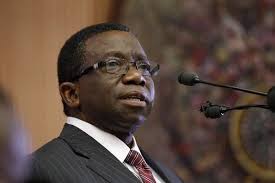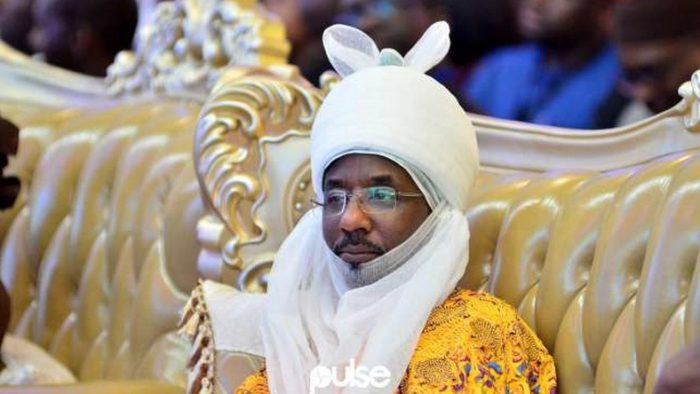Follow the money: Can Nigeria deal with covid-19?

By Adie Vanessa Offiong
As the 2019 fiscal year drew to an end, Nigeria was writing up a budget for 2020—and it was unaware how that would change. A pandemic of coronavirus disease was waiting in the wings to change all that.
The pandemic started in China, shutting down production factories that run on oil sourced from oil-producing countries like Nigeria. That started in December. In following weeks, it spread to other countries. Without oil buyers, oil price slumped around the world. Nigeria has had to review its budget twice since, and yet no one is ready to buy.
That might explain global economics and the impact it has taken with the outbreak of coronavirus. Budgets—projected incomes and expenditures of entire governments—have been rubbished by an invisible enemy.
But was Nigeria adequately prepared for this blow?
The Nigeria Centre for Disease Control has become the country’s most prominent public health institution. It leads the preparedness, detection and response to infectious disease outbreaks.
It is responded to Ebola. For years, it has been responding to Lassa fever, meningitis, cholera, yellow fever—all infectious diseases that rattle the population every year like clockwork.
Its last major battle with an infectious disease was with monkey pox. And this February, coronavirus disease jumped onto that list.
It is proud of its ability to detect, and control diseases of public health importance from the arrival of the index case into the country in February.
More importantly, it has demonstrated leadership by remaining at the fore front of COVID-19 response strategy development, implementation and coordination through a multi-sectoral national emergency operations centre (EOC), activated at Level 3.
From a grossly inadequate number of laboratories, the agency has significantly expanded the network of reference and molecular laboratories in the country, while working with state governments to strengthen capacity for sample collection and transportation.
The NCDC has risen at no better time in Nigeria’s history than now to reduce mortality and morbidity resulting from not just the COVID-19 pandemic, but other diseases of public health importance like Lassa fever, and by so doing enhance the economic development of Nigeria.
In recognition of the role of strategic partnerships and collaborations in defeating pandemics of this nature, the agency is leading Nigeria’s engagement with bilateral and multilateral institutions.
There are definitely no doubts as to its ability to effectively manage most or all of the knowledge generated during the course of this global emergency to inform policy and practice now, and in the future.
But how much can it really do?
Money, money, money
Despite the challenges of COVID-19, NCDC in collaboration with the Federal Ministry of Environment and Federal Ministry of Agriculture and Rural Development have over the last four months led Lassa fever response activities across the country.
This was done in close collaboration with State Ministries of Health, and with support from partners coordinated by WHO.
Once the pandemic reached Nigeria, it was obvious NCDC’s entire budget pushed into coronavirus response was inadequate.
Following successive decline in cases below the emergency threshold, and an epidemiological review carried out by NCDC and the World Health Organisation (WHO), an end was declared to the emergency phase of the 2020 Lassa fever outbreak in Nigeria.
The NCDC began the COVID-19 response from a weak and disadvantaged position, particularly considering its low budgetary allocation of N1,673,486,126 in the 2020 budget.
A breakdown of the NCDC budget in naira for 2020 follows:
Total personnel 849,711,861
Total overhead 93,774,265
Total recurrent 943,486,126
Total capital 730,000,000
Total allocation 1,673,486,126
Once the pandemic reached Nigeria, it was obvious NCDC’s entire budget pushed into coronavirus response was inadequate.
It would require emergency funding to be spent on infection prevention and control, personal protective equipment, surveillance and epidemiology, case management, laboratory diagnosis, logistics, supply as well as risk communication activities.
As yet, NCDC sends out millions of SMS daily to millions of mobile phone subscribers in Nigeria on its #takeresponsiblity campaign to get the public involved in Covid-19 prevention. That is being paid for by the US government.
Faced with coronavirus pandemic, the Nigerian government had to cough up a N6.5billion emergency intervention fund for the country’s response.
The fund would go to equip, expand and provide personnel to its facilities and laboratories across the country.
The special intervention is nearly four times the entire budget of the NCDC for 2020.
Despite the high-level commitment so far demonstrated by government and stakeholders, there still remains challenges to be addressed to reach our goal of a healthy and safe Nigeria, free from the threat and occurrence of infectious disease outbreaks like COVID – 19.
It is imperative for the country to continue to invest in building resilient health systems.
This will safeguard citizens and act as a strategy to bolster the much-desired economic transformation of the nation. After-all, it has been demonstrated that preparedness for pandemics and health emergencies has a high return on investment, estimated at $2‒7 for every $1 committed.
A look at the National Action Plan for Health Security(NAPHS), a comprehensive multi-sectoral plan that integrates multiple work plans across the health sector, in a bid to address the major gaps identified by the Joint External Evaluation of 2017 and Performance of Veterinary Services (2010) assessments, and prioritizing them by national strategies and risks, reveals 19 technical areas required to effectively prevent, detect, and respond to public health threats like COVID-19 in Nigeria.
The estimated cost to implement all planned activities during 2018‒2022 is N134 billion ($439million).
The major cost driver in the plan is the immunizations plan under the Nigeria Strategy on Immunization and Primary Health Care Systems Strengthening (NSIPSS) is N81 billion ($265 million USD, or 60% of total cost).
The remaining 18 NAPHS technical areas cost during 2018–2022 is approximately 53 billion Naira ($174 million USD), or approximately 18 cents per capita (N56) per year.
The major cost drivers of the NAPHS come from the laboratory, emergency preparedness, surveillance, and workforce development technical areas, reflecting major initiatives by the agency and other partners to improve health security in these three areas.
The activities presented in the NAPHS represent the minimum needed investments, costing approximately 130 Naira per capita per year, which includes important efforts to strengthen our national immunization programme.
So far, COVID-19, has had unprecedented impact on nations, economies and people across the globe.
According to the Centre for the Study of the Economies of Africa (CSEA), beyond the tragic health hazards and human consequences, the economic uncertainties, and disruptions that have resulted come at a significant cost to the global economy.
The United Nations Trade and Development Agency (UNCTAD) put the cost of the outbreak at about US$2 trillion in 2020.
The outbreak of pandemic Covid-19 all over the world has disturbed the political, social, economic, religious and financial structures of the whole world.
The world’s topmost economies such as the US, China, UK, Germany, France, Italy, Japan and many others are at the verge of collapse.
Stock markets around the world have been pounded and oil prices have fallen off a cliff. In just a week 3.3 million Americans applied for unemployment and a week later another 6.6 million people started searching for jobs.
The impact on Nigeria, and by extension Africa, brings to the fore the cost of containing diseases of this magnitude.
Whereas small strategic investments in our public health systems can prevent major damages.
How did the spread of the coronavirus bring the global economy to its knees? The answer lies in two methods by which coronavirus stifled economic activities.
First, the spread of the virus encouraged social distancing which led to the shutdown of financial markets, corporate offices, businesses and events.
Second, the exponential rate at which the virus was spreading, and the heightened uncertainty about how bad the situation could get, led to flight to safety in consumption and investment among consumers, investors and international trade partners.
The world will certainly not remain the same post COVID-19.
The experience with SARS, H1N1 and Ebola shows that, while some progress is made after each outbreak, this is often not sustained.
This pandemic shows that managing diseases is absolutely critical to the long-term health of global economy.
For the future that we seek, it is important to organize our health system around people, institutions and resources.
This approach will yield broader outcomes, delivering health care in a sustainable, equitable and effective way, accelerating progress toward universal health coverage and helping prepare for emerging threats to national and global health security.
“Let’s start by adequately funding @NCDCgov. The critical agency has an ANNUAL budget of N1.76bn, approximately half of the Operational Cost of the President alone (N3.27bn). Our budget is designed to maintain public office not serve the public,” it said.
As Nigeria’s lead public health institution, the NCDC has already demonstrated its capacity. With increased and sustained funding, it will yet again lead and coordinate the implementation of Nigeria’s NAPHS.
The Insight Report
Nigeria Coverage




проведение опрессовки системы отопления says:
Pretty nice post. I just stumbled upon your blog and
wished to mention that I have truly loved surfing around your weblog posts.
After all I will be subscribing to your rss feed and I hope you write again soon!
Чеки на гостиницу в Казане says:
It’s remarkable in favor of me to have a web page, which is good designed for my experience.
thanks admin
body tape for stomach says:
Thanks for finally writing about > Follow
the money: Can Nigeria deal with covid-19?
– The Insight < Loved it!
Гостиничные чеки в Казани says:
Thanks for sharing your thoughts about . Regards
купить гостиничные чеки в Екатеринбурге says:
Hello mates, its enormous piece of writing regarding tutoringand entirely defined, keep it up all the time.
увеличение губ гиалуроновой кислотой says:
My family members always say that I am wasting my time here at web, except I
know I am getting know-how daily by reading thes
pleasant content.
удаление кариеса says:
Thanks for some other informative website. Where else may I get that
type of information written in such an ideal way? I’ve a challenge that I’m simply now running on, and I have
been at the look out for such info.
накрутка комнат YAPPY says:
Thanks for sharing your info. I really appreciate your efforts and I will
be waiting for your next post thank you once again.
накрутка посещений комнаты YAPPY says:
I just couldn’t go away your website before suggesting that I really loved the standard information a
person supply in your guests? Is gonna be again steadily to check out new posts
Гостиничные чеки Екатеринбург says:
If you would like to get a good deal from this post then you have to apply these
strategies to your won web site.
яппи купить подписчиков says:
Thank you for the auspicious writeup. It in fact was a amusement account it.
Look advanced to more added agreeable from you! By the way, how can we communicate?
накрутка подписчиков в яппи says:
Hello just wanted to give you a brief heads up and let you know a
few of the images aren’t loading properly. I’m not sure why but I think its a linking issue.
I’ve tried it in two different internet browsers and both show the same
outcome.
удаление пигментных пятен Минск says:
Have you ever thought about creating an e-book or guest authoring on other blogs?
I have a blog centered on the same topics you discuss and would love to have you share some stories/information. I know my
visitors would enjoy your work. If you are even remotely interested,
feel free to send me an email.
увеличение объема губ says:
naturally like your web-site but you need to take a look at the spelling on quite a few of your posts.
Several of them are rife with spelling issues and I to find it
very troublesome to tell the truth nevertheless I will surely come again again.
увеличение губ минск says:
This post will help the internet visitors for building up new webpage or even a blog from start to
end.
Установка кондиционера Минск says:
I want to to thank you for this wonderful read!!
I absolutely enjoyed every little bit of it. I’ve got you book marked to check out new stuff
you post…
монтаж кондиционера Минск says:
Quality articles or reviews is the important to invite the people to pay a quick visit the web page,
that’s what this website is providing.
лечение кариеса says:
Hi there, I found your blog via Google even as searching for a similar
matter, your website came up, it seems good. I’ve bookmarked it in my google bookmarks.
Hello there, simply was aware of your blog through Google, and found that it’s truly informative.
I am gonna be careful for brussels. I’ll be grateful if you happen to proceed this in future.
Lots of folks shall be benefited out of your writing.
Cheers!
http://infocars24.ru/ says:
Amazing! This blog looks just like my old one! It’s on a completely different topic but it has
pretty much the same page layout and design. Superb choice of
colors!
http://cb23.ru/ says:
Wow, this article is nice, my sister is analyzing these kinds of things, therefore I am going to convey her.
Гостиничные чеки купить в Москве says:
Hey there! This is my first comment here so I just wanted to
give a quick shout out and say I truly enjoy reading through
your articles. Can you recommend any other blogs/websites/forums that cover the
same subjects? Many thanks!
http://masakra.ru/ says:
I always spent my half an hour to read this web site’s content
everyday along with a mug of coffee.
хранение электроники says:
Hi Dear, are you really visiting this site daily, if so afterward you will
absolutely get fastidious knowledge.
удаление пигментных пятен says:
Nice blog! Is your theme custom made or did you download
it from somewhere? A design like yours with a few simple adjustements would really make my blog stand out.
Please let me know where you got your theme.
Many thanks
снять место для хранения вещей says:
Excellent web site you have here.. It’s difficult to find high-quality writing like yours
nowadays. I truly appreciate people like you!
Take care!!
Adaji Daniel says:
Thank you for your kind words.
We look forward to giving you more engaging posts.
хранение техники на складе says:
Highly energetic article, I enjoyed that a lot. Will there be a part 2?
Adaji Daniel says:
Thank you for your kind words.
We look forward to giving you more engaging posts.
хранение бытовой техники says:
Hello to every one, the contents present at this web page
are truly awesome for people knowledge, well, keep up the nice work fellows.
http://mydwg.ru/ says:
Wonderful site you have here but I was curious about if you knew of any community
forums that cover the same topics discussed in this article?
I’d really like to be a part of group where I can get suggestions
from other knowledgeable people that share the same interest.
If you have any suggestions, please let me know.
Thanks a lot!
Adaji Daniel says:
Thank you for your feedback. Kindly join our WhatsApp group at +2349048285388 for more information.
Thank you.
сведение тату минск says:
I really like what you guys are usually up too. This sort of clever work and coverage!
Keep up the good works guys I’ve included you guys to my own blogroll.
Adaji Daniel says:
Thank you for your kind words.
We look forward to giving you more engaging posts.
свести тату минск says:
I like the helpful info you supply on your articles. I’ll bookmark your
blog and take a look at once more right here frequently.
I am relatively certain I’ll learn plenty of new
stuff right here! Best of luck for the following!
Adaji Daniel says:
Thank you for your kind words.
We look forward to giving you more engaging posts.
сколько стоит свести тату says:
Oh my goodness! Incredible article dude! Thank you, However I am having troubles
with your RSS. I don’t know the reason why I am unable to join it.
Is there anyone else getting identical RSS problems?
Anybody who knows the solution can you kindly respond?
Thanks!!
Adaji Daniel says:
Sorry for the hitches encountered. Kindly revisit the site for an exciting read.
http://remontiruj-info.ru/ says:
This post provides clear idea designed for the new visitors of blogging, that genuinely how to
do blogging.
Adaji Daniel says:
Thank you for your kind words.
We look forward to giving you more engaging posts.
http://remontiruj-info.ru/ says:
whoah this blog is wonderful i like reading your posts.
Stay up the great work! You already know, many persons are hunting around for this info, you can aid them
greatly.
Adaji Daniel says:
Thank you for your kind words.
We look forward to giving you more engaging posts.
свести тату минск says:
Greetings! I’ve been reading your blog for some time now
and finally got the courage to go ahead and give
you a shout out from Porter Tx! Just wanted to tell you keep up the excellent job!
Adaji Daniel says:
Thank you for your kind words.
We look forward to giving you more engaging posts.
http://infostroitely.ru/ says:
I think the admin of this web site is actually working hard in favor of his website, since here every information is quality based stuff.
Adaji Daniel says:
Thank you for your kind words.
We look forward to giving you more engaging articles.
Трансфер в Шерегеш says:
This is my first time go to see at here and i am in fact impressed to read everthing at alone place.
Трансфер в Шерегеш says:
Pretty section of content. I just stumbled upon your website and in accession capital to assert that I acquire in fact enjoyed account your blog posts. Any way I’ll be subscribing to your augment and even I achievement you access consistently rapidly.